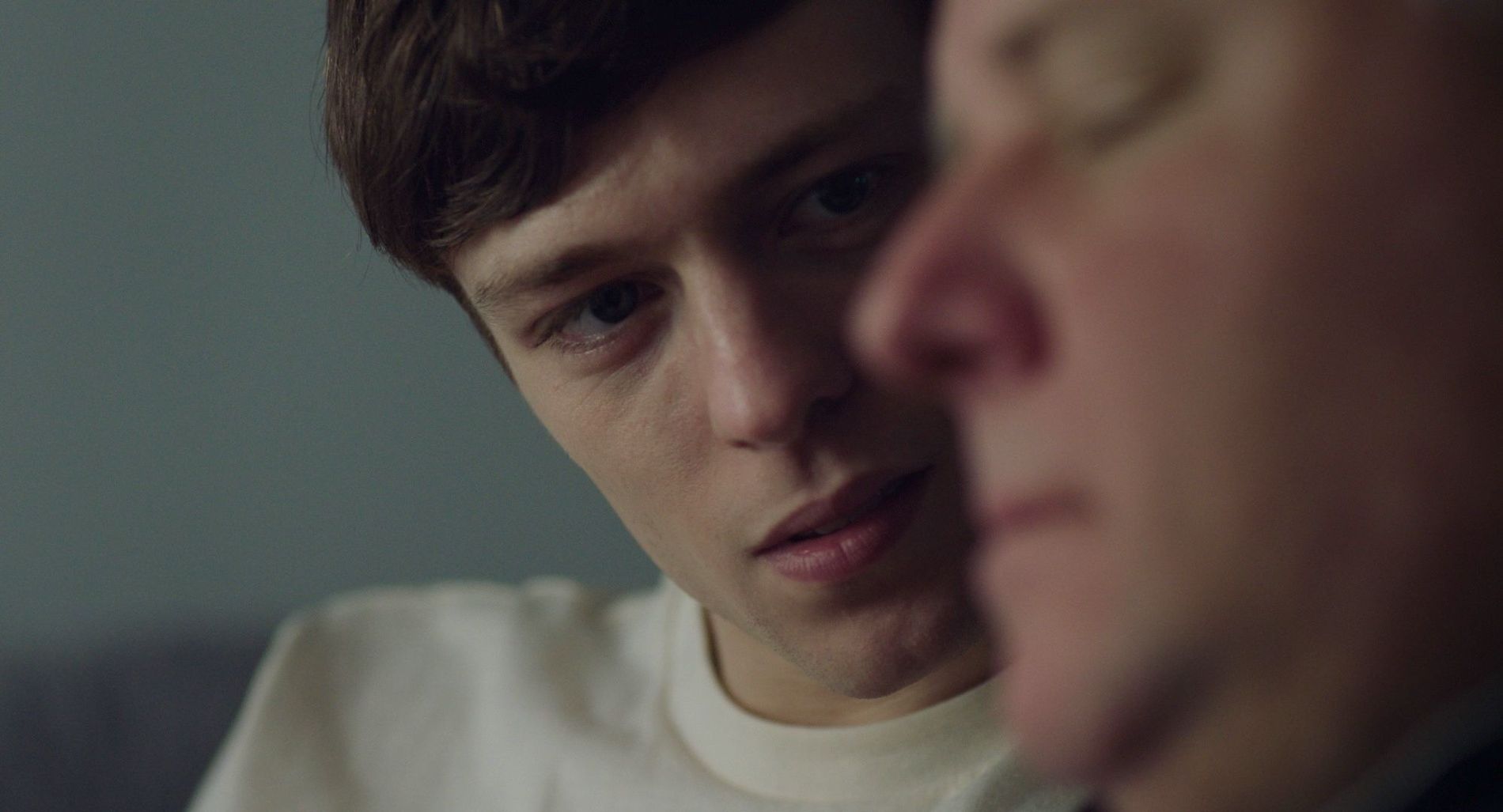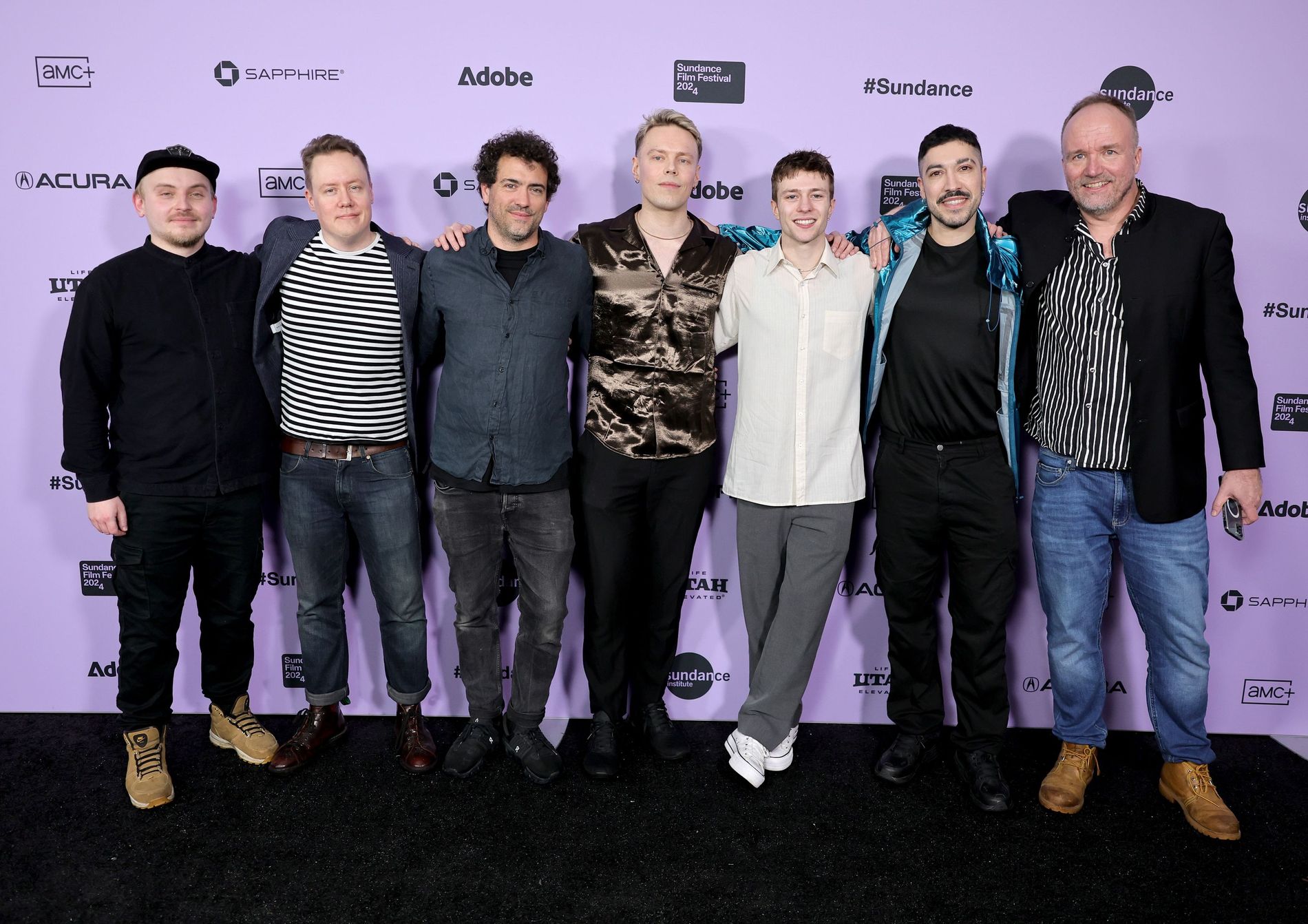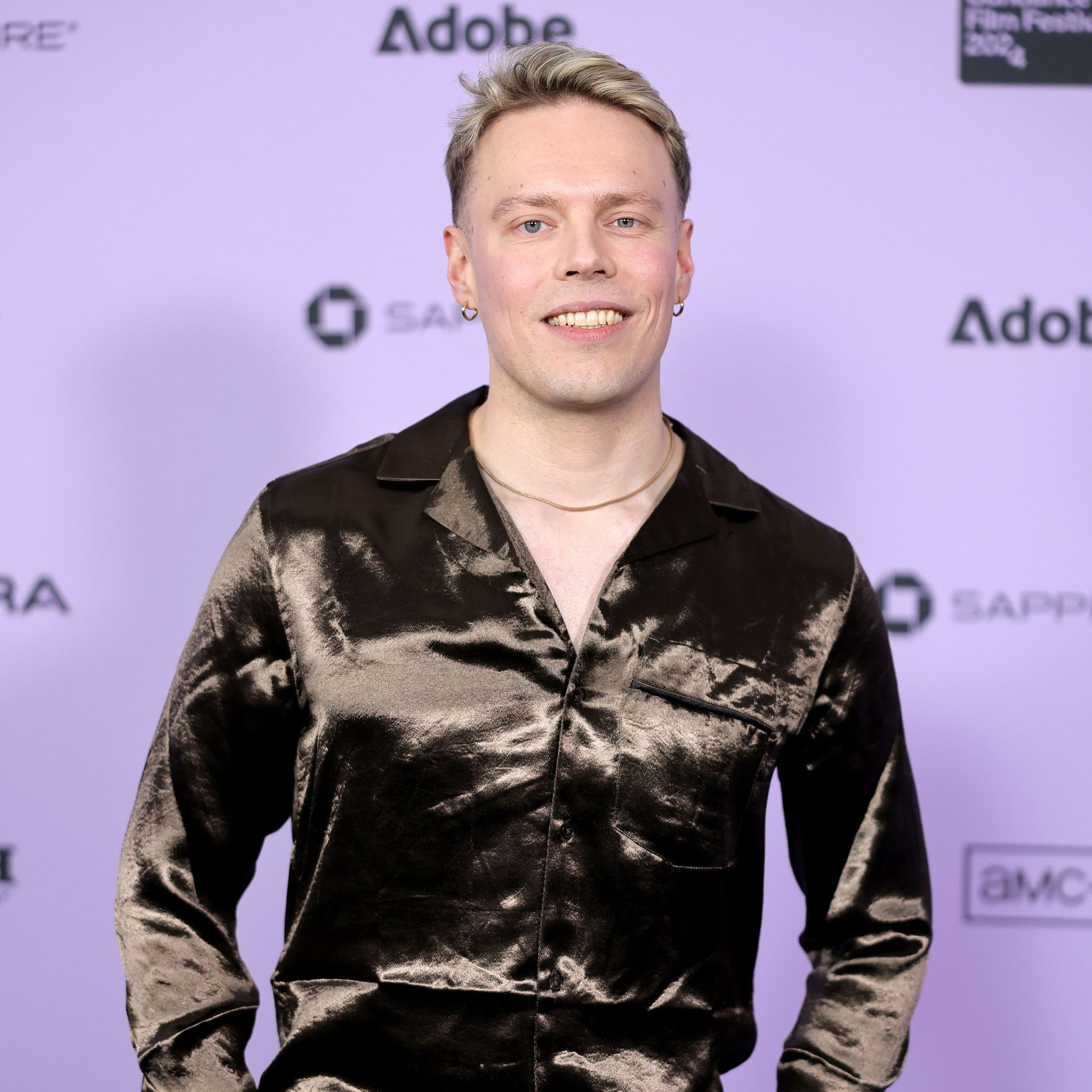Repeatedly dubbed one of the most interesting contemporary LGBTQ-directors in the world, Mikko Mäkelä is tugging the heart strings and tickling the fantasies of queer and mainstream audiences alike. Mäkelä's sophomore feature film Sebastian caught the attentions of Sundance Film Festival where Vogue Scandinavia caught up with the Finnish director
Sundance Film Festival is celebrating its 40th anniversary this year. Vogue Scandinavia travelled to Utah to highlight Nordic cinema in a series of interviews.
“I’m really excited. Sundance is a place where so many filmmakers whom I admire have debuted their films and it has such a rich tradition highlighting queer cinema”, says Mikko Mäkelä of his sophomore feature film Sebastian premiering at Sundance, as we chat at the festival's location in snowy Utah. “I couldn’t imagine a better audience to unveil the film for.”
The London-based Finnish director's Sebastian is a heartfelt depiction of queer sexuality. The film tells the honest, heartfelt and – at times – raunchy story of 25-year-old journalist Max (played by Ruaridh Mollica) who is writing a novel about a sex worker named Sebastian and throwing himself so wholeheartedly into his research that he ends up blurring the lines between the protagonist on the pages and his own reality. Mäkelä says that he’s always been interested in the philosophical question of whether you actually need lived experience when writing about something, or if can you exercise imagination and empathy to do so. “There’s also the question about authority of voice and who has the right to tell a story. Should a story only be told by people who have lived through certain experiences?” he ponders.

A still from Mäkeläs sophomore feature film release, 'Sebastian'.
Mäkelä left Finland for the UK 16 years ago to study literature at Nottingham University. He says that he had wanted to become a filmmaker “ever since he was 10 years old”, and that Finland back in 2007 didn't feel particularly appealing to a young queer filmmaker. “Back then it felt like a close minded and intolerant society and it didn’t feel like a comfortable place to live at that time”, he says. “I felt like if I wanted to make something of myself as a film-maker I would need bigger cities to work in.” But his perception of his homeland has since changed. “You become aware of your own blind spots and you see new things and can appreciate things that you took for granted before and in terms of queer rights, Finland has come a long way.”
Of his choice to initially study literature, Mäkelä explains that he saw it as the best foundation for all kinds of storytelling. He went on to study at UCL, leading him to work on music and fashion promos and some editing work, before he made his directorial debut in 2017 with a A Moment in the Reeds which screened at over 80 festivals worldwide.
The film doesn’t seek to give any direct answers. I’m always more interested in raising questions for the audience to think about.
Mikko Mäkelä
Mäkelä has already been dubbed one of the most interesting contemporary queer filmmakers by the likes of Indiewire and Variety and the director says that he’s hoping that Sebastian will start new conversations and debates among audiences around questions of identity and marginalisation. “The film doesn’t seek to give any direct answers. I’m always more interested in raising questions for the audience to think about. You have to find a way in, whether that be an emotional connection, or a personal experience or a thematic connection. Something that animates you and gets you closer to the story.” he says.

(L-R) Iikka Salminen, Arttu Salmi, Dries Phlypo, Mikko Makela, Ruaridh Mollica, James Watson, and Aleksi Bardy attend the 'Sebastian' premiere during the 2024 Sundance Film Festival. Photo: Getty
Sebastian competed in Sundance’s World Cinema Dramatic Competition and has received plenty of praise from the industry. The fact that Sebastian is a queer story, does not keep it in locked up in a queer box. “It can translate quite universally, queer or not. There are so many universal themes: it’s a coming-of-age story and deals with the idea of forming your identity. It asks what the things are that you are prepared to do, or experiment with, for finding yourself. Itt asks what kind of risks you are willing to take, and what kind of lines you would transgress, to perhaps find a deeper sense of self,” Mäkelä says. “I hope that those themes will speak universally to all people.”
